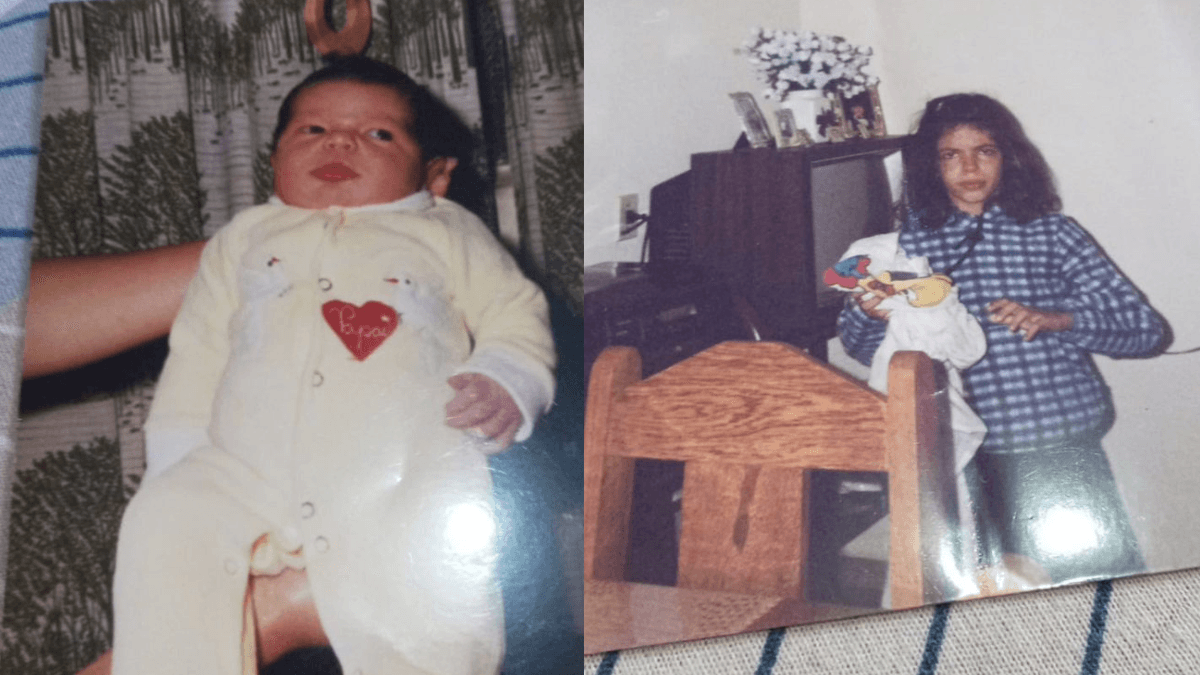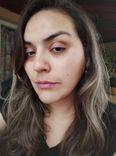Quando o cuidado nasce da vivência: conheça a história de Carolina Nobre
Jovem médica autista transforma sua história em acolhimento, cria instituto, escreve livros e encontra na cannabis um cuidado possível
Publicada em 21/08/2025

Carolina Nobre trasnforma, diariamente, a dor em abrigo | Foto: Arquivo Pessoal
Desde pequena, Carolina Nobre percebia que existia algo em si que não cabia nas molduras do mundo. Os sons machucavam, as interações sociais se esgotavam, e seu universo interno pulsava com uma intensidade que poucos conseguiam compreender. Ainda criança, aprendeu a se camuflar, a se ajustar e a se encaixar, mesmo que isso significasse deixar pedaços de si pelo caminho.
“Foi só na vida adulta, depois de muita dor invisível, que comecei a desconfiar que havia algo além da ansiedade e do ‘jeito sensível de ser’”, conta. A resposta veio como um alívio: autismo. Um nome, finalmente, para tudo aquilo que sempre esteve ali, silenciado pelas exigências externas.
O diagnóstico que libertou

Ao contrário do que muitos pensam, o diagnóstico não foi uma sentença. Foi libertação. Foi o início de um novo olhar, mais amoroso, mais coerente, mais inteiro.
“Passei a me enxergar com mais gentileza, a entender meus limites e a dar nome para dores antigas”, diz Carolina.
E foi exatamente a partir desse reencontro consigo mesma que ela transformou a dor em direção. Tornou-se cirurgiã-dentista, voltou à universidade para estudar medicina, fundou um instituto, escreveu dois livros e encontrou na cannabis medicinal um cuidado que respeita sua singularidade.
A virada de chave chamada cannabis
Em meio a um cotidiano de exaustão sensorial, crises de sobrecarga e noites mal dormidas, a cannabis apareceu como uma esperança. E, depois, como uma chave que abriu portas antes trancadas.
“A cannabis me ajudou a sair de um estado constante de alerta, a dormir melhor, a viver com mais clareza emocional. Com ela, consegui acessar uma regulação que antes parecia impossível”, relata. Mais que um remédio, tornou-se uma aliada no processo de autocompreensão. Um cuidado que não violenta, que não tenta normatizar…apenas acolhe.
Dores que ensinam, palavras que acolhem
“Minhas dores não eram só minhas”, ela diz. E foi esse entendimento que a levou a escrever Dores Invisíveis — Autismo Feminino e Conexão Autista. Os livros são convites à escuta, pontes lançadas para que outras pessoas não atravessem sozinhas os desertos que Carolina percorreu.
Escrever, para ela, foi curar. Foi fazer das cicatrizes um mapa para quem vem depois. “Escrevi para acolher e para educar. Porque quando a gente entende, a gente acolhe melhor.”
O Instituto Carolina Nobre: um sonho que nasce da urgência
Criado em 2019, o Instituto Carolina Nobre nasceu do desejo de desmistificar o universo autista, como diz seu slogan, mas também da urgência de construir um lugar seguro, interdisciplinar e realmente inclusivo. Um espaço feito por quem vive na pele o que defende.
Ali, Carolina e sua equipe promovem acolhimento, capacitação e escuta para famílias, profissionais e pessoas neurodivergentes. “Eu queria criar o que me faltou”, resume. E criou.
Da cadeira do consultório ao jaleco branco da medicina
Antes de se tornar quase médica, Carolina foi (e ainda é) cirurgiã-dentista. Optou por cuidar de crianças e pessoas com deficiência, aquelas que tantos profissionais evitavam por achar “difíceis”. Para ela, sempre houve beleza nas singularidades.
A transição para a medicina, na Universidade Federal de Santa Catarina (UFSC), foi desafiante. Enfrentar o capacitismo, o cansaço e o peso de ser diferente em um ambiente ainda tão engessado exige coragem diária. Mas ela resiste e avança.
“Quero usar esse diploma para cuidar de pessoas como eu — neurodivergentes, marginalizadas, invisibilizadas. Quero ser ponte, abrigo e voz.”
O autismo feminino que (ainda) não cabe nos manuais
Carolina é uma das vozes mais potentes a falar sobre o autismo feminino, aquele que não grita, mas pesa. Que não se encaixa nos estereótipos masculinos tão difundidos na literatura médica. Que é profundo, real e negligenciado. “É cansativo, muitas vezes solitário, mas também revolucionário. Porque cada vez que eu me posiciono, eu crio rachaduras nesses padrões”, explica. Para ela, viver sua autenticidade é também um ato político.
Um dos mitos mais cruéis que Carolina enfrenta é o da suposta ausência de empatia entre autistas. “Isso me fere profundamente. Sentimos tanto que às vezes transbordamos. O que falta não é empatia, é tradução”.
Quando a medicina aprende a escutar
E talvez seja exatamente isso que ela vem fazendo: traduzindo sentimentos, experiências e vivências que durante muito tempo foram caladas. A medicina do futuro, acredita, precisa ser menos sobre protocolos e mais sobre presença. “O futuro está na interseção entre ciência, humanidade e inclusão”.
Para as meninas que, como ela, estão se descobrindo autistas na juventude, muitas vezes tarde demais para evitarem feridas profundas, Carolina deixa um recado: “Você não está errada. Você não está sozinha. E você não precisa se moldar para caber em lugares que não foram feitos para você”, reforça.
Carolina Nobre é mais que médica. É escritora, ativista, dentista, fundadora de um instituto e uma das principais vozes na luta por uma sociedade mais acessível para pessoas neurodivergentes. Mas, acima de tudo, Carolina é ponte: entre o silêncio e a palavra, entre a ciência e o afeto, entre o protocolo e o cuidado. E como toda boa ponte, ela sustenta, conecta e conduz.
Especialista Guilherme Nery, médico generalista graduado em Medicina Canabinoide, explica sobre as consequências do diagnóstico tardio do transtorno do espectro autista. Confira:










